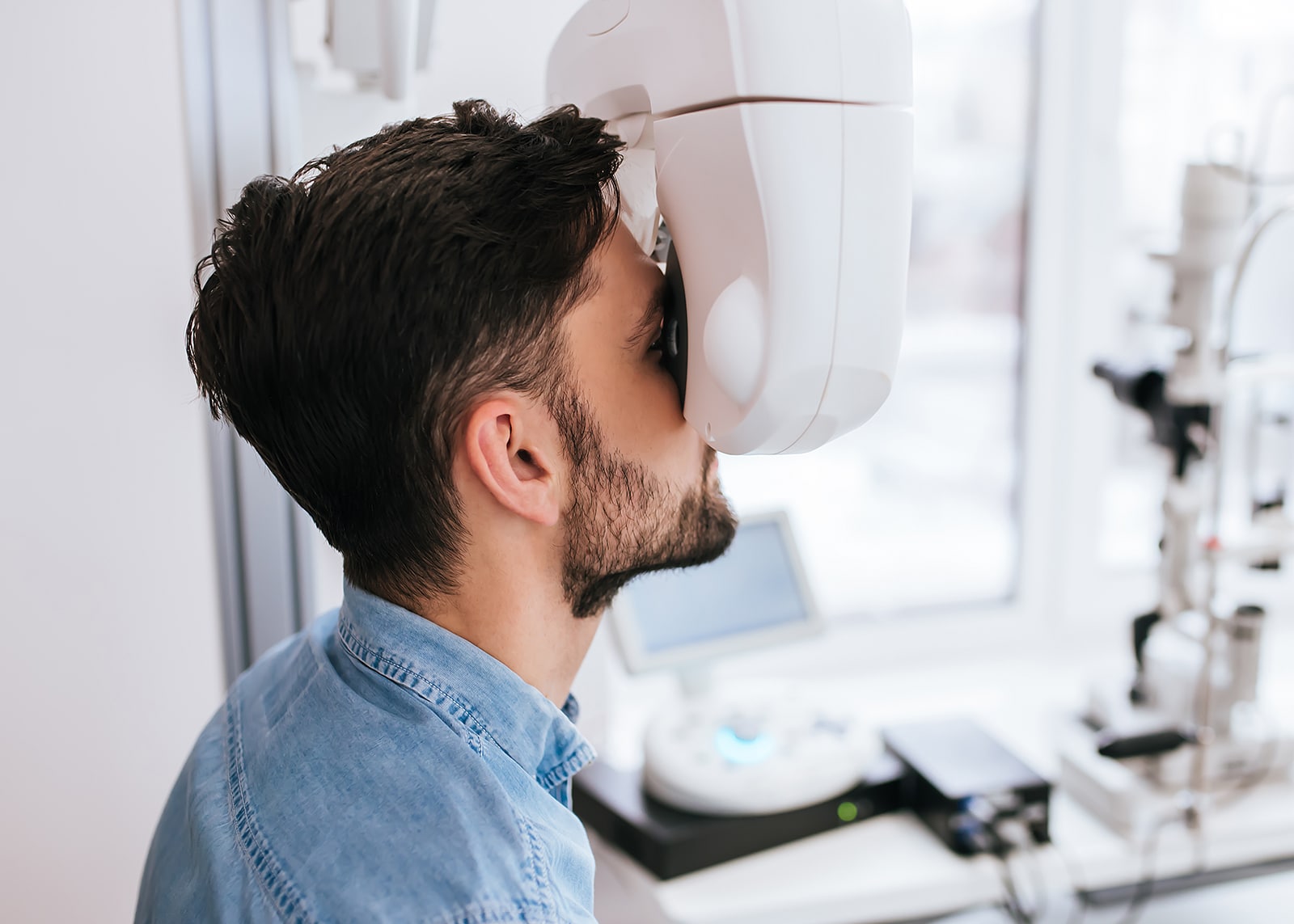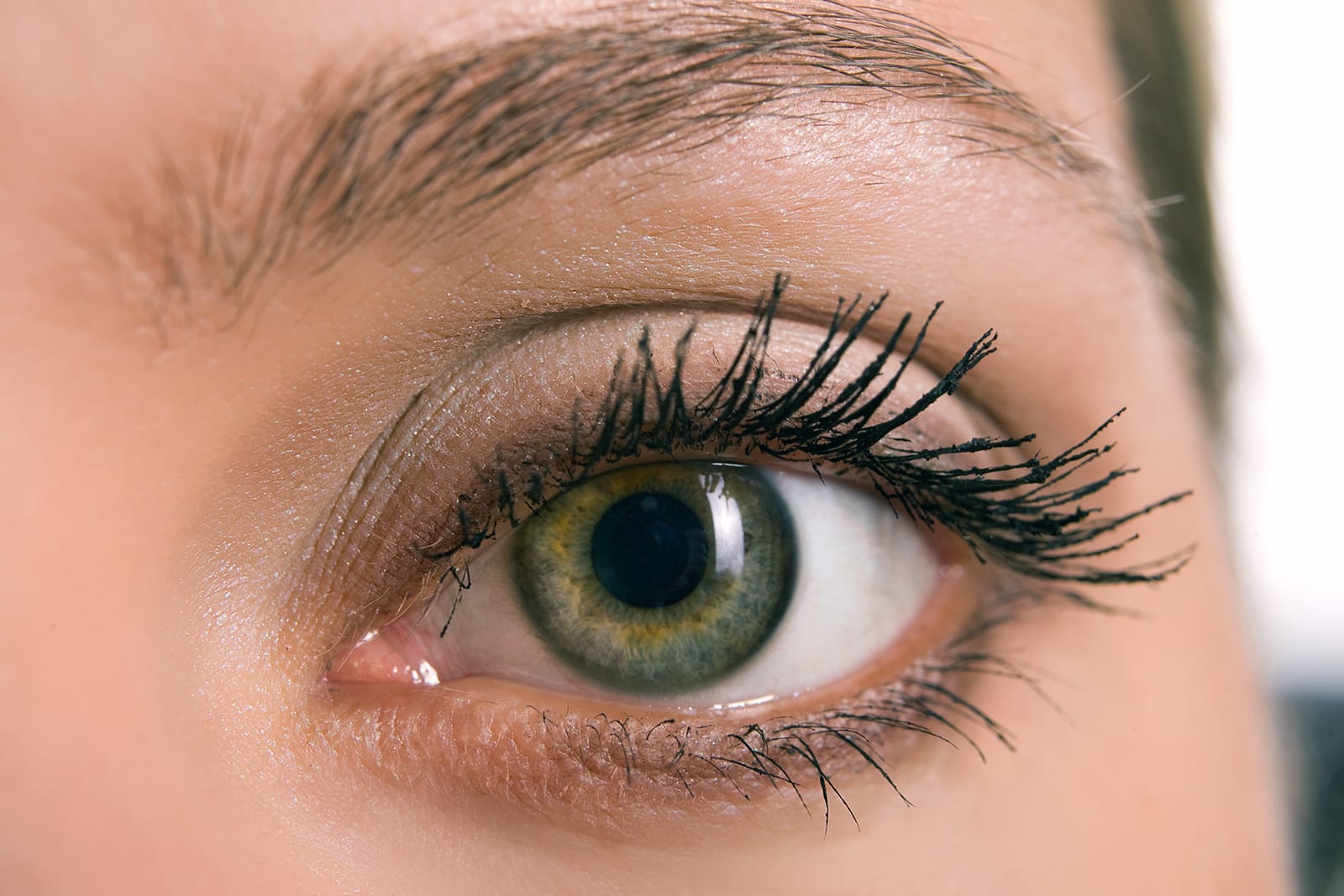
Whether it’s been a couple years since your last visit or you’re slightly nervous about having your eyes examined, it's always helpful to know what to expect before your visit. Below you can read about some of the testing you can expect at your appointment.

Whether it’s been a couple years since your last visit or you’re slightly nervous about having your eyes examined, it's always helpful to know what to expect before your visit. Below you can read about some of the testing you can expect at your appointment.
Every patient will complete a series of pre-tests including a screening visual field which checks your peripheral vision, or how well you see out of the sides of your vision. It's possible to lose your peripheral vision without realizing it, so it’s important to have that checked annually. Visual field loss or changes can provide information for your doctor to help diagnose ocular and/or systemic issues including glaucoma, strokes, retinal detachments, and brain tumors, just to name a few.
Glaucoma is one of the leading causes of blindness in the world and doesn’t present with symptoms until 30% of vision is permanently lost. Unfortunately, there’s no one test that says a patient has glaucoma which is why annual comprehensive eye exams are so important. As you read under “Peripheral Vision Screening” we can detect changes related to glaucoma sooner with different tests. Another way of checking for glaucoma is a test called tonometry. Tonometry measures the pressure inside your eyes (called intraocular pressure).
At Blaine Eye Clinic, we have two ways of measuring your eye pressure. Our screening tonometer is a handheld device used by technicians. They “tickle your eyelashes” with a probe that gently touches the front surface of your eye and measures how much pressure is pushing back. Our doctors also have equipment that gives a more accurate reading using a yellow drop and a blue light if the screening eye pressure value is of concern.
We use an autorefractor to help determine a baseline prescription, by presenting an image for you to focus on while the instrument measures how light bounces off your retina.
That image moves in and out of focus and produces a starting point of your prescription that your optometrist will then fine tune during your refraction, more commonly remembered as the “which is better, one or two, test.”
This instrument also measures the curvature of your cornea which is helpful if a patient is interested in wearing contact lenses.
When you think of an eye exam, testing visual acuity may be the part you're most familiar with. To test this, you'll read an eye chart to determine how well you can see at different distances.
You'll cover one eye while an optometric technician tests the other one. Visual acuity measures how small you are able to read on the eye chart.
Before dilating your eyes, your eye doctor will check to see how your pupils respond to light. When more light is present the pupils should get smaller. If no changes occur, there could be an underlying reason that would require us to take a closer look.
To measure and evaluate how your eyes move together, you'll have a test called ocular motility performed. Ocular motility looks at if your eyes are correctly aligned and if the muscles in your eyes work as they should.
Your eye doctor will use a slit-lamp microscope to view the front of your eye, allowing them to see the cornea, eyelids, eyelashes, lens, pupils, and iris. Using this instrument, your optometrist can check for things like corneal abrasions, dryness, allergies, or cataracts.
At Blaine Eye Clinic, we offer all our patients 20 years of age and older the option of doing a wellness scan. The wellness scan takes measurements of layers of the retina that we can’t see with a dilated eye exam as well as a photo of the back of the eye. This scan helps your optometrist look for early signs of ocular diseases including glaucoma, macular degeneration, as well as some systemic diseases like hypertension and diabetic retinopathy. Though not a required part of your exam, because our optometrists are always looking for evidence of these concerns, our doctors strongly recommend this testing as the scan provides a sense of ease for patients knowing that we’re looking for and detecting possible visual challenges as soon as possible.
Make an Appointment
Blaine Eye Clinic believes that to best assess visual concerns, routine dilation is the best practice. Every other year for healthy patients under the age of 50, and yearly after age 50 when risk for disease increases. Our doctors will dilate your pupils which allows for better views of important structures in the back of your eye including your retina, macula, and optic nerve.
Side effects to this comprehensive testing are pretty minimal; patients can expect to notice more light sensitivity for a few hours as well as increased blurred vision, primarily at near.
At the end of your exam, you will have a glasses prescription that corrects for your refractive errors, whether that be near or farsightedness, astigmatism, or presbyopia. How you choose to correct your vision is completely up to you, but our doctors and supporting staff are here to help you make educated decisions on what the best corrective options are for you based on your needs. Blaine Eye Clinic is happy to assist in picking out frames that are stylish and comfortable as well as educate you on lens designs to suit your lifestyle. And if glasses aren’t for you, our optometrists are happy to discuss whether contact lenses are a right option for you.
Make an Appointment